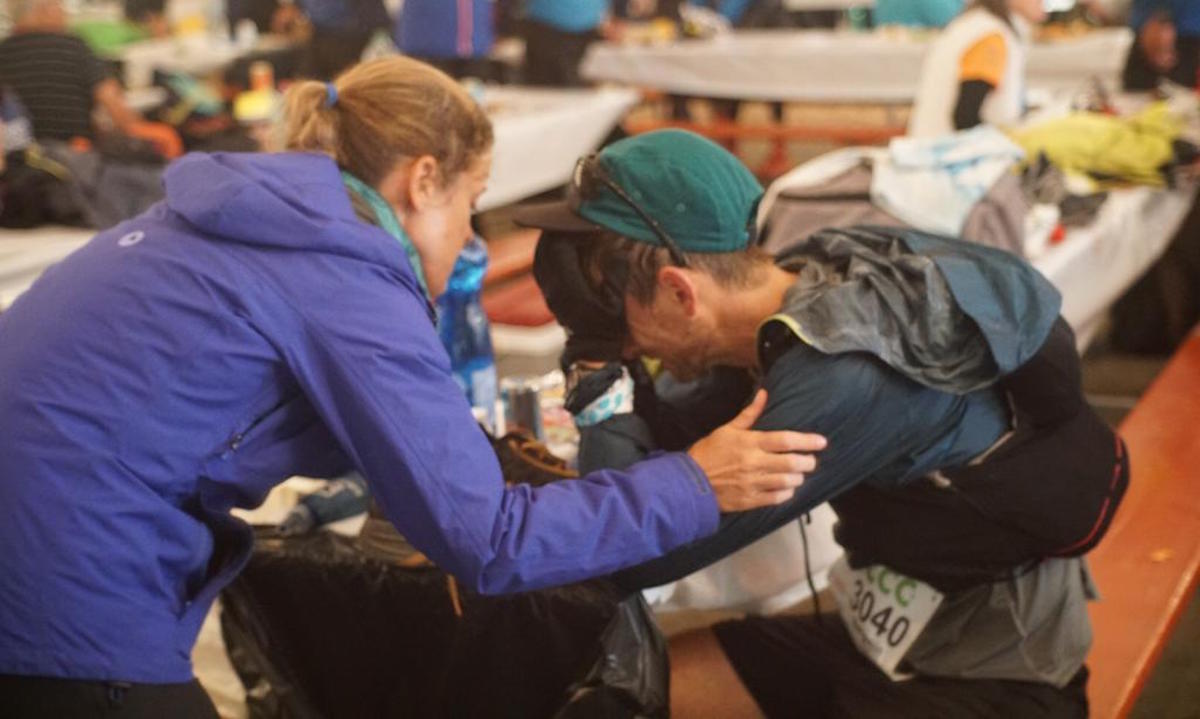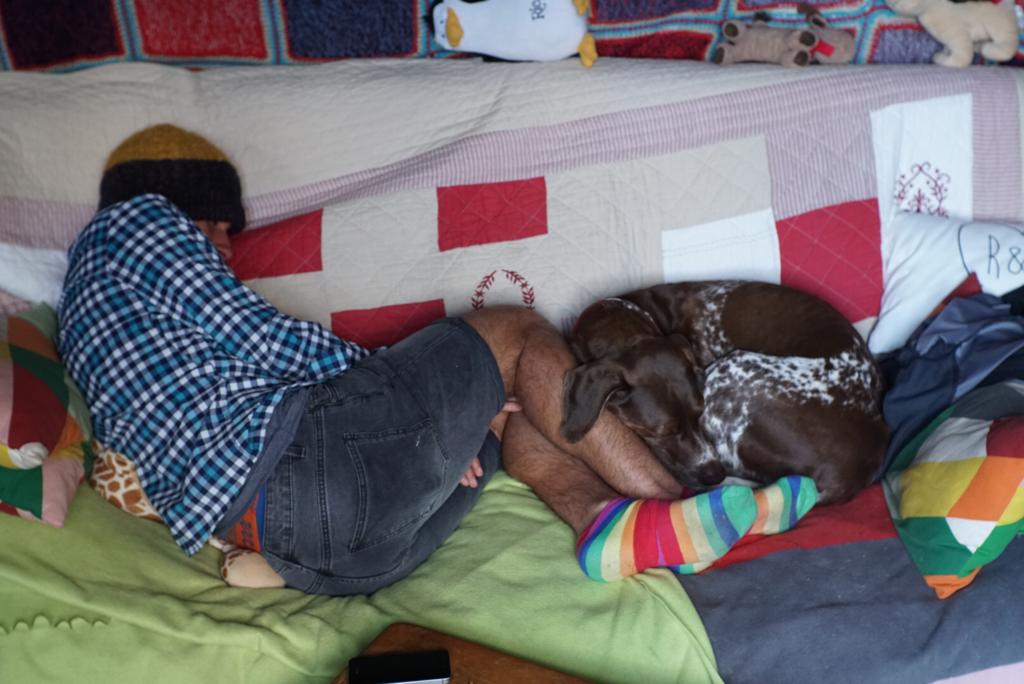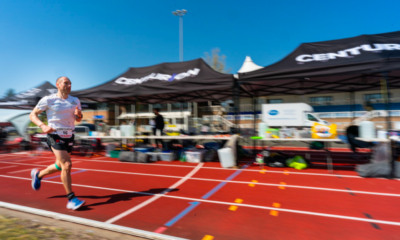
Injury can be an unfortunate part of running, but time off doesn’t have to be all bad.
As a runner who isn’t often injured, finding myself with a niggle in my glute the last few days has been an interesting time. At first it was just a niggle that I ran through. Our annual training camp made this a necessary action.
When the pain got worse with activity, I knew something needed to be done. Cross training was the first thought, as well as full on rest. The best thing to do is get some expert advice.
Having seen a physiotherapist and an osteopath, we figured I was a bit wonky in the hips and this had eventually inflamed my piriformus. I had stretches to do, self massage as an option, but rest was necessary. Time off my favourite hobby, what on earth was I to do with myself?
All the extra time and energy suddenly on your hands can be a problem. But with a bit of sense it can be used to help with your injury and even to come back stronger. What should you be doing with your time off running?
Is true rest best?
Often an injury will need rest, but true rest is sometimes hard to come by. In our busy lives many will be on our feet at work, commuting, walking the dog, throwing the kids around and a whole host of other things that are more important than out and out rest.
A runner’s injury might stop them running, but actually still leave you fitter and more able than most. Telling your boss you need to rest, when you’re still more active than everyone else might not make sense to them. A doctor can say you’re fit and healthy, even if you can’t run all the miles you want. It makes it hard to prioritise recovery.
Compared to the general population you’re probably still in fine shape. Not all injuries need complete rest and a physio can often advise on whether cross training or inactivity is the best course of action. Appropriate loading is a term used, don’t make things worse.
If you do need full rest then think about allocating the time you might be out running to a period of proper rest. If you might normally have a 45-60 min run then replace that with time reading a book or having a nap.
We often undervalue rest, but actually putting it into your plan for the days when injured is a logical thing to do.

Photo: Natalie White
Cross training
We’ve got your back covered when it comes to cross training in these articles. First we asked whether cross-training could be key to your success, then looked at the different types of cross training on the market. There’s even the mental benefits in there too.
But before jumping on your bike, have a think about whether your injury could be aggravated by the activity. Different types of cross training might be suitable for your injury and a good physio can give you advice on whether swimming, cross country skiing or trampolining might be better for your active recovery.
Personally I tried a bit of biking, being careful not to get too excited at the intermediate sprints and avoiding too many hills. Towards the end of the hour it still started to feel like rest might have been better, so a few more days of full rest before I jump back on the carbon stead.
Wider activités
Everything you do doesn’t have to be about improving your fitness. Something highlighted in David Epstein’s new book “Range” is the importance of having interests and outlets outside of your specialised subject.
Having a creative outlet, such as relaxing with a musical instrument, taking a woodwork class or getting into your photography could really help provide a different eye for your running.
In a world where many believe we need to specialise more and more, having a wider world view can be key in seeing a novel way to success. Problem solving, something any ultra runner has to do in any race, as well as any endurance athlete really, is helped by a bigger range of experience.
Becoming totally focused on your running might stop you seeing the bigger picture and in the long run, that’s not going to be good for your physical and mental health. Take the time out injured to improve your range, even just studying a different sport could be beneficial.
Strengthening the weakness
Time on the injury bench can also be a good time to address other weaknesses. These needn’t be solely physical weakness, but other areas of performance too.
On a basic level it might just be doing some core strengthening that will help you come back stronger after your time off (as long as it’s not aggravating your injury) or looking at your lifestyle or work space to find a way to prevent your injury from reoccuring, be it dietary improvements or changing your desk to a standing one.
Using your time off to read into topics such as mental skills or race fuelling can be useful too. There’s plenty of online course at places like FutureLearn and just on Youtube. Coming back stronger isn’t just about muscles, but your knowledge too.
Plan for the future
It can certainly be frustrating to be on the sidelines. Even now I’m still hoping to be back in time for a 5000m race next week, but it will take some sort of miracle for that to be a good idea (although I’m an external optimist).
Instead of bemoaning missing events, sessions and losing training time, focus on future goals and how you’re going to achieve them. Make plans so the future is brighter than ever.
Goal setting is a useful exercise whether you’re running strong or taking some down time. Making SMART goals can be a productive distraction for your mind when you want to go out running.
Failing that, getting the right kit for your next adventure is also effective, for a short term hit, but before going on a spree of retail therapy, look at ReRun Clothing and the message they are trying to send.
Stay involved
Just because you’re not running doesn’t mean you can’t be part of the running community. Take the time to volunteer at your local club or as part of the weekend parkrun.
Volunteering isn’t only a great way to give back to your community, keep your running mind happy and help others, it’s also a good way to keep learning for your own running.
Just be careful not to get carried away in all the excitement and go running around anyway! Same for those first runs back as well. Don’t start sprinting the second you can go back outside, take those first few runs nice and easy.
If you really want to spend some cash, then get a new tattoo. Always mixes well with time off to let the new ink heal.
Are you a fan of Fast Running? Then please support us. For as little as the price of a monthly magazine you can support Fast Running – and it only takes a minute. Thank you.



















